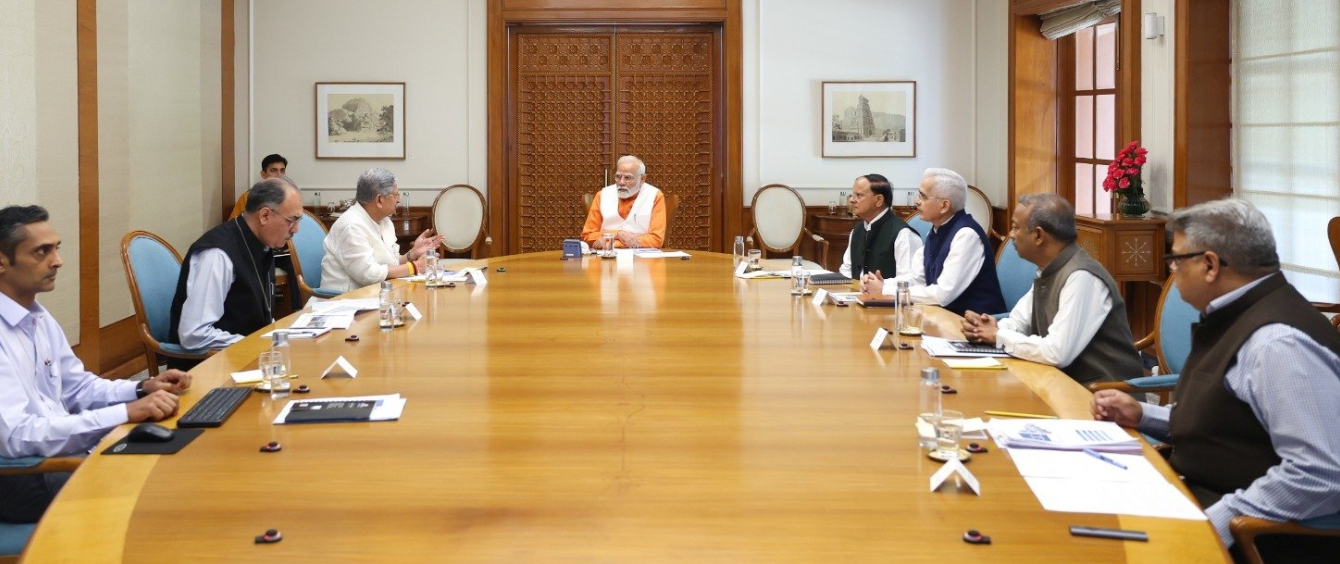Disclaimer:
This article is based on publicly available news reports, including information from Bloomberg and official statements. The views expressed are for informational purposes only and do not constitute financial, political, or strategic advice. Readers are encouraged to verify facts independently and consider multiple perspectives before forming conclusions.

In a significant geopolitical development, India has chosen to stand firm on its energy policy despite increasing pressure from the United States. Last week, U.S. President Donald Trump announced a 25% tariff on Indian goods and warned of additional restrictions if India continued purchasing crude oil from Russia. This move was widely interpreted as an attempt to coerce India into aligning more closely with U.S. foreign policy interests, particularly concerning the ongoing Russia-Ukraine war.
Following Trump’s announcement, a flurry of reports surfaced suggesting that India might be reconsidering its crude oil imports from Russia. However, these reports have now been debunked. According to Bloomberg, the Indian government has issued no directive to any of its public or private refineries to stop or reduce oil imports from Russia. Government sources clarified that no specific instructions have been passed regarding procurement from any particular country. Instead, Indian oil refiners are continuing to make commercial decisions based on pricing and supply logistics.
Bloomberg further reported that no official restrictions have been imposed by the Indian government on the purchase of Russian crude, dealing a strategic blow to Washington’s efforts. This revelation comes amid growing concerns in the U.S. administration over India’s expanding trade relationship with Russia in the energy sector.
India’s position has been consistent: its energy decisions are guided by economic and market realities, not geopolitical pressure. The government has repeatedly emphasized that its energy security is paramount and decisions will be based on affordability, availability, and diversification of sources.
To ensure a diversified oil supply and safeguard against potential future disruptions, Indian refineries have been advised to prepare alternative supply plans. This includes contingency measures in case Russian supplies face interruptions. As part of this strategy, Indian Oil Corporation recently purchased 5 million barrels of crude oil from the United States and another 2 million barrels from Abu Dhabi. This step is seen as a precautionary move aimed at building a resilient energy supply chain, rather than a signal of policy shift away from Russia.
Since the beginning of the Russia-Ukraine war, India has emerged as one of the largest buyers of Russian seaborne crude oil. What was once a negligible portion of India’s oil basket has now grown to nearly one-third of Russia’s total oil exports. This significant increase has drawn sharp criticism from the United States and the European Union, who argue that such purchases indirectly support Russia’s war efforts.
Washington’s stance is clear: reducing India’s dependence on Russian oil is a strategic priority. But India’s actions so far indicate a careful balancing act—acknowledging Western concerns while protecting its own national interests. Energy analysts suggest that if India were to significantly reduce or stop importing Russian crude, it would be forced to return to buying oil from the Gulf countries, where prices are considerably higher. This could lead to a spike in India's import bill, putting additional pressure on its trade deficit and overall economy.
Despite diplomatic friction, India remains steadfast in its approach. It is actively pursuing multiple sources to ensure supply security, but without succumbing to unilateral pressure from any country. For New Delhi, the primary concern remains energy affordability for its 1.4 billion citizens, not aligning with geopolitical blocs.
As tensions simmer, the larger question remains: Will India continue to withstand U.S. pressure and prioritize its own strategic autonomy, or will it eventually bend under growing diplomatic strain?
Only time will tell which direction India takes. But for now, the message is clear—India will act in its own national interest, not under external compulsion.




